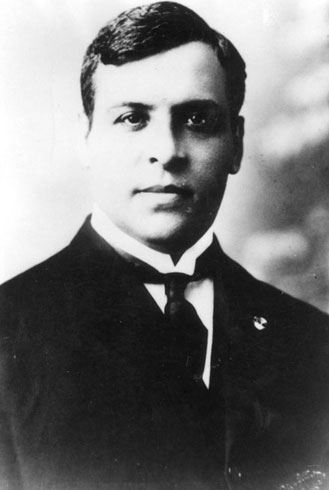"If thousands of Jews suffer because of a non-Jewish demon (Hitler), then surely a Christian can suffer with so many Jews."
 |
| Aristides de Sousa Mendes (http://www.fundacaoaristidesdesousamendes.com/) |
Aristides de Sousa Mendes was born on the 19th of July of 1885 in Cabanas de Viriato (Viseu), within an aristocratic and Catholic family. Having graduated in law, in the University of Coimbra, in 1907, Aristides - unlike his father, who was a judge and his twin brother, who embarked in politics - chooses to follow a consular career, mainly connected to administrative aspects, in particular the issuing of visas. That career eventually led him to leave Portugal and travel to the four corners of the world: Zanzibar, Brazil, Spain, United States of America and Belgium.
After 10 years in Belgium, Sousa Mendes is sent to Bordeaux (France) by the President of the Portuguese Ministers Council, António de Oliveira Salazar, taking over the place of Portuguese Consul, in that city, in August 1938. When, in September of the following year, the Second World War begins, Salazar, in order to defend their nation's interests, commands to issue a warning known as infamous Circular 14, which prohibits the issuance of visas to Jews, stateless people and other "unwanted" people. As Sousa Mendes does not seem to abide by the instructions of Circular 14, in early 1940, Salazar warns him that he should stop issuing visas to Jews and that if he didn't, he would be "subject to disciplinary procedures."
Despite having received orders not to issue visas to any Jew, when, in June, Paris is taken by the Nazis, and the Parisian Jews take refuge in Bordeaux, Aristides decides to defy these orders and issues visas indiscriminately, stating that "there is no nationality, race or religion anymore". Faced with warnings arriving from Lisbon, Aristides responds that "I would rather stand with God against man, than with man against God." and with this thought he allows about 18 000 Jews to enter Portugal (only on 17, 18 and 19 June that year).
Removed from his position in late June, and subject of disciplinary proceedings, he ends ostracized by his peers, family and friends, having to give up his career and even being forbidden to perform duties as a lawyer. Thus, Aristides ends up going through economic difficulties, eventually dying in poverty and debt on the 3rd of April, 1954.
Although he died alone and his efforts had not been recognized in life, in 1961, 20 trees were planted in his honor in Jerusalem and, five years later, in 1966, he was awarded by the Yad Vashem Memorial, the title of "fair among the nations" which, in four words, sums up what Aristides was: a great man and an example for future generations.
Page created on 7/8/2015 10:37:37 AM
Last edited 7/8/2015 10:37:37 AM
